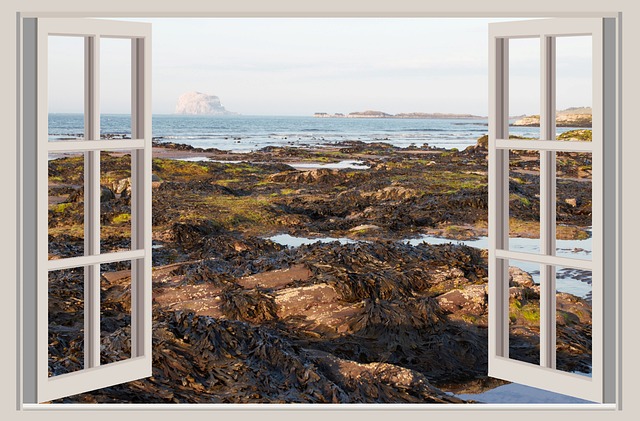Selecting new windows can be a significant investment, so choosing the right material is crucial. Vinyl and aluminum are two of the most popular options, each with its own strengths and drawbacks. In this guide, we’ll dive into the details of vinyl vs aluminum windows, so you can make a well-informed choice for your home.
Durability: Which Material Lasts Longer?
When it comes to durability, both vinyl and aluminum offer excellent longevity, but their resilience differs in important ways.
Vinyl Windows
Vinyl windows are made from polyvinyl chloride (PVC), a durable material that withstands weathering well. They are resistant to issues like peeling, warping, and cracking, even in harsh weather conditions. Vinyl does not corrode and requires little upkeep, which makes it a popular choice for homeowners who prefer low-maintenance options.
Aluminum Windows
Aluminum windows, on the other hand, are known for their strength. Unlike vinyl, aluminum is a highly rigid material, which makes it ideal for larger windows or designs that require a thinner frame. However, aluminum windows are more prone to corrosion over time, particularly in coastal areas with high salt exposure. Some models come with a powder-coated finish to increase corrosion resistance, but aluminum generally requires more upkeep than vinyl to maintain its appearance.
Verdict: Vinyl windows are a solid choice for homeowners seeking a low-maintenance, long-lasting solution, while aluminum is ideal for those prioritizing strength and sleek frame profiles.
Energy Efficiency: Which One Saves More?
Energy efficiency is a top priority for many homeowners, especially with rising energy costs. Both vinyl and aluminum windows can be energy-efficient, but they differ in thermal performance.
Vinyl Windows
Vinyl is a natural insulator and provides excellent thermal resistance, helping to keep homes warm in winter and cool in summer. Many vinyl windows come with multi-chambered frames and energy-efficient glass options, further improving insulation. This makes vinyl an excellent choice for regions with extreme temperatures, as it prevents heat transfer effectively.
Aluminum Windows
Aluminum, while strong, is a conductor of heat and can lead to energy loss. However, modern aluminum windows often include a thermal break—a non-conductive material placed between the inside and outside of the frame—to improve energy efficiency. While this technology helps reduce heat transfer, aluminum windows may still not match the energy-saving capabilities of vinyl in extreme climates.
Verdict: Vinyl windows typically offer better insulation, making them the more energy-efficient option for most climates. Aluminum windows with thermal breaks are a viable choice in milder climates.
Style and Aesthetic Appeal
Style is another essential factor when considering vinyl vs aluminum windows. Each material offers unique aesthetic options to match different home designs.
Vinyl Windows
Vinyl windows are available in a range of colors, sizes, and styles, from classic double-hung windows to sliding and casement options. However, they cannot be painted, so you’ll need to choose a color that suits your long-term plans. Vinyl’s thickness also limits the options for thinner frames, which may not suit all modern or minimalist styles.
Aluminum Windows
Aluminum windows, with their sleek and slim frames, provide a contemporary look that’s hard to achieve with vinyl. They are available in a variety of finishes and can be custom-painted to suit any decor. Aluminum frames are a popular choice for modern or industrial-styled homes due to their clean lines and metallic look.
Verdict: Aluminum offers more flexibility in terms of style and customization, while vinyl provides reliable style options with more limited customization.
Cost Comparison: Which Option Fits Your Budget?
Budget considerations often play a key role in the vinyl vs aluminum windows decision.
Vinyl Windows
Vinyl windows are generally more affordable upfront, making them a budget-friendly option. The combination of low maintenance costs and good energy efficiency also contributes to long-term savings. For homeowners looking to update windows on a tight budget, vinyl is often a top choice.
Aluminum Windows
Aluminum windows tend to have a higher initial cost, especially with added features like thermal breaks. However, the durability and sleek look of aluminum may justify the investment for homeowners who prioritize aesthetics and structural strength.
Verdict: Vinyl windows are typically more affordable, both initially and in terms of maintenance. Aluminum windows can be a worthwhile investment for those who value design flexibility and are prepared for a potentially higher upfront cost.
Maintenance: Which Material Requires Less Effort?
No one wants windows that require constant maintenance, so let’s examine the upkeep needed for vinyl vs aluminum windows.
Vinyl Windows
Vinyl windows are nearly maintenance-free. They don’t need painting, are resistant to fading, and are easy to clean with soap and water. Their resistance to weathering means they can retain their look for many years with minimal care.
Aluminum Windows
Aluminum windows may require more maintenance, particularly in harsh climates. While they don’t need to be painted often, they can corrode or develop a dull appearance without proper care. Coastal homes or regions with high humidity may find aluminum windows require more frequent attention to prevent rust and corrosion.
Verdict: Vinyl windows are lower maintenance, making them the preferred choice for homeowners who want to minimize upkeep.
Vinyl vs Aluminum Windows—Which Should You Choose?
When comparing vinyl vs aluminum windows, each material has its unique benefits. Vinyl windows are a fantastic all-around choice for those who want affordable, energy-efficient, and low-maintenance windows. Aluminum windows, with their strength and design flexibility, are ideal for homeowners seeking a modern aesthetic and thinner frames. By evaluating your specific needs, climate, and budget, you can find the perfect windows that enhance your home’s comfort and style.


